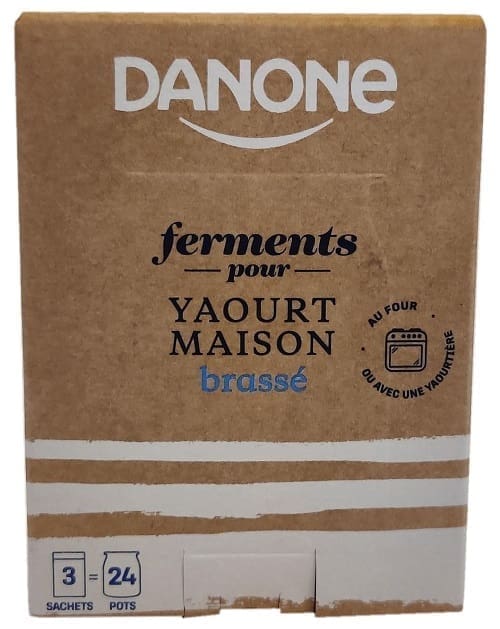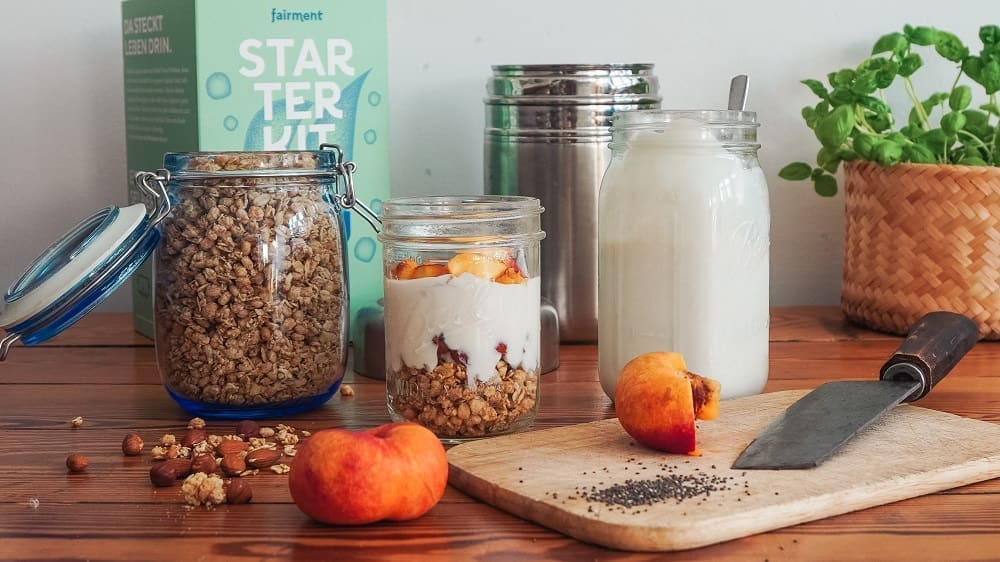As a result of the pandemic, consumers have dedicated more time for cooking. While over a fifth of Britons claim they learnt a new cooking technique such as baking bread or fermentation, 2 out of 5 French consumers aspire to cook more from scratch in 2021.
As they become more skilled and confident cooks, consumers will start making food and drink that they usually buy pre-packaged, such as yogurt and desserts at home. In Germany, for example, 3 out of 5 dairy alternatives consumers would be interested in kits to make plant-based milk or yogurt from scratch.
Yogurt brands can position make-at-home yogurt as a value proposition
Inspired by India, where most people eat fresh homemade curd, yogurt brands can invite consumers to use their products as a starter for their own homemade varieties, and stress the savings that come from continual “production” of cultured food.
As consumers in many markets struggle with the economic impact of the pandemic, they will be drawn to empathetic brands that help them manage their food budgets. Avoiding prepared products is a solution considered by consumers who look to save money. In fact, nearly half of French and a sizable number of German consumers would like to avoid prepared products if they were trying to save money on food and drink.
Danone Ferments pour Yaourt Maison Brassé (Lactic Ferments for Homemade Stirred Yogurt) can be prepared in the oven or in a yogurt maker, and is enough to make 24 yogurt pots. Danone’s launch is in line with its innovation strategy: to meet all consumers’ needs, from plant-based dairy alternatives to locally sourced ingredients and homemade solutions. (France)
Image source: Mintel GNPD
Improve yogurt’s sustainable credentials by stressing the environmental saving of making it at home
Making yogurt at home can also appeal to consumers who, motivated by the health of the planet, aspire to live a sustainable lifestyle by being more self-sufficient or by taking an active part in the circular economy.
Brands that encourage consumers to make yogurt at home can help address the challenge of packaging waste and transport emissions. Consumers who make yogurt at home can significantly reduce their packaging waste as they can reuse the same pots as many times they want.
In many markets, consumers are concerned about the environmental impact of the dairy industry and are ready to support brands’ efforts to make yogurt packaging more sustainable. In the UK, for example, a significant number of consumers say that it is worth paying more for yogurt in sustainable packaging.
Make yogurt at home for leisure and pleasure
Making yogurt at home can appeal to consumers who are preparing food as a pleasurable pastime. Far from being a chore, for many, cooking is an activity they garner satisfaction and fulfilment from. During the months of lockdown last year, a couple of homemade trends made a (re-) appearance on social media and gathered like-minded people worldwide around food topics. Fermentation for sourdough baking, kombucha and pickling was one of them – and could easily expand to yogurts and desserts. Make-at-home yogurt and dessert kits can be fun and educational. They can encourage consumers to explore the science behind their favourite foods and try out new flavours with surprising recipes and encourage kids to learn more about nutrition and food manufacture.
The yogurt starter kit from German brand Fairment comes with a stainless steel yogurt maker including a glass jar, a thermometer, the Fairment yogurt culture, as well as detailed instructions and free access to their “Fermentation Academy”, an online community where consumers can find tips and creative recipes to try at home. (Germany)
Image source: @fairment
The opportunity
By encouraging and supporting consumers to make yogurt at home, brands will help them reappraise the naturalness of their products, meet their needs for control over the ingredients that go into their food, and offer a pleasurable and educational pastime.









































